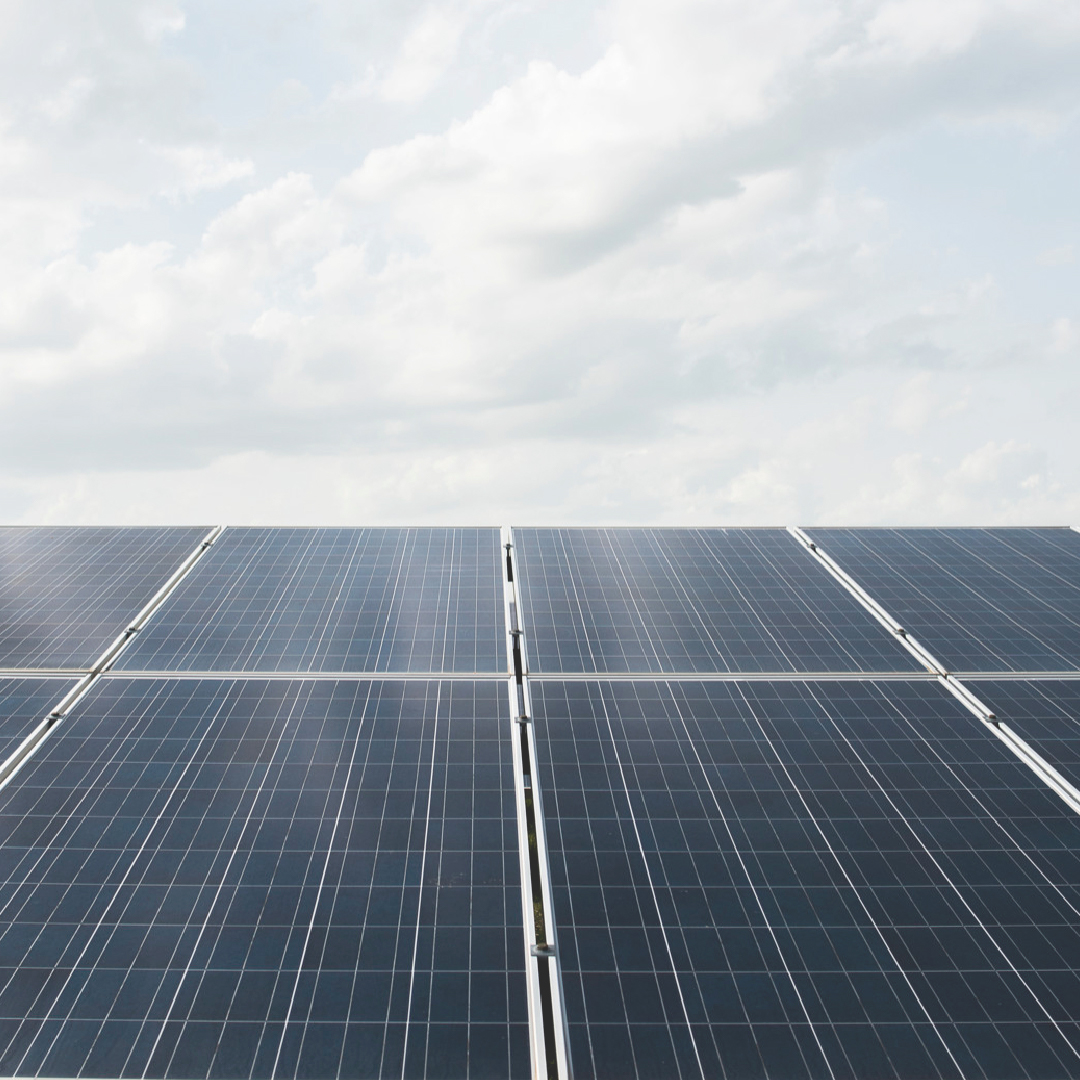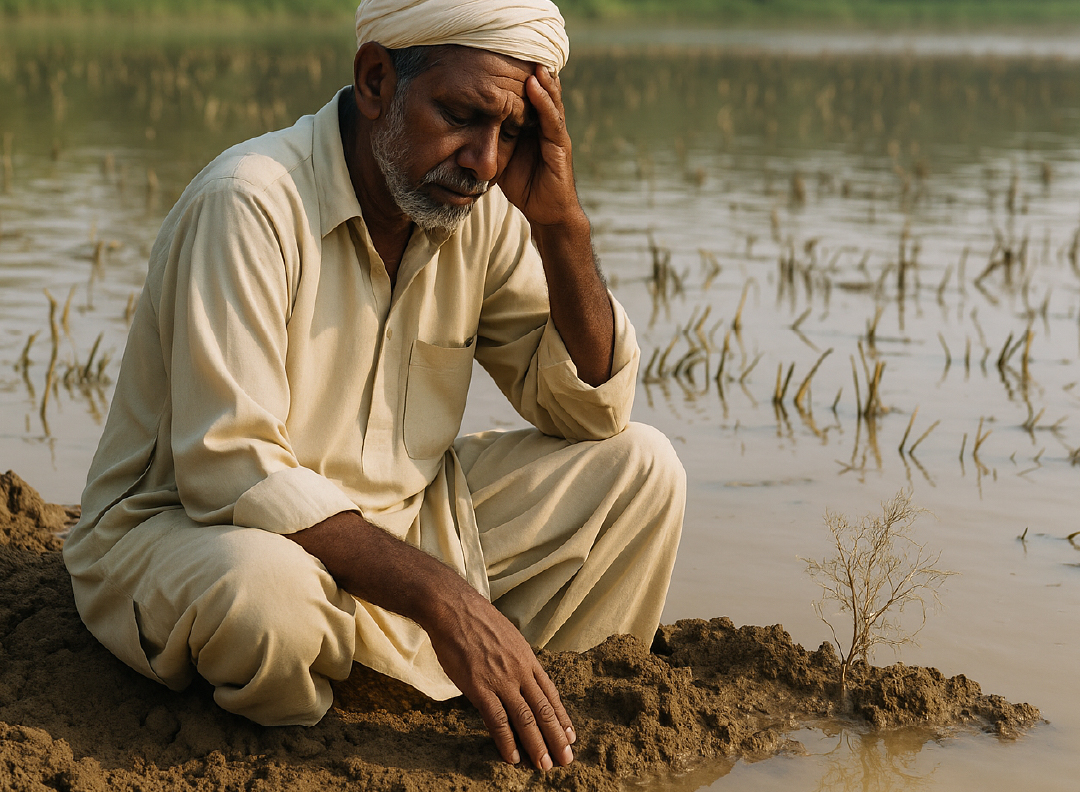At this very point in time, Pakistan finds itself confronted by a multitude of pressing issues. From the relentless surge in energy costs to the escalating consequences of climate change, coupled with formidable economic challenges, we are to wrestle with a complex interplay of factors intertwining energy, environment, and economy.
Energy in Pakistan transcends mere power supply for homes and industries; it may well be considered as a pulse of the economy and we are struggling to ensure a consistent and affordable access to electricity. However, amidst this, there emerges a beacon of hope: the alternative solution in the form of a rational energy transition. Pakistan has already begun to recognize the need to overhaul its energy landscape, not only to meet the rising demand for energy but also to catalyze societal and economic advancement in a truly transformative manner.
Key Drivers of Energy Transition
“Pakistan has not moved towards new renewable energy sources as readily as other countries”, says a climate expert, Dawar Hameed Butt. He points towards the reason, “our planners mainly rely on fossil fuels and hydropower, providing half of our electricity, while new plans incorporate cheaper solar and wind projects to avoid expensive additions to the grid.”
Within academia, the opinion is not much different. While the government committed to the Nationally Determined Contributions (NDC) for ensuring a transition to renewable energy by 2060, it looks less likely to happen. Dr. Shakeel Hayat, a senior climate change and water management specialist, believes this transition has not seen a rapid progress because, “we do not have an enabling environment which propels us to move away from conventional energy to renewable energy source.”
Zeeshan Ashfaq, CEO Renewables First, explains “Pakistan has been moving at a snail’s pace as only 2.6 GW of renewable energy could make it to the national grid during the last two decades. Policy and regulatory uncertainty, weak grid infrastructure, limited finance and lack of coordination between the federal and the provincial governments have been hindering renewable energy market growth.”
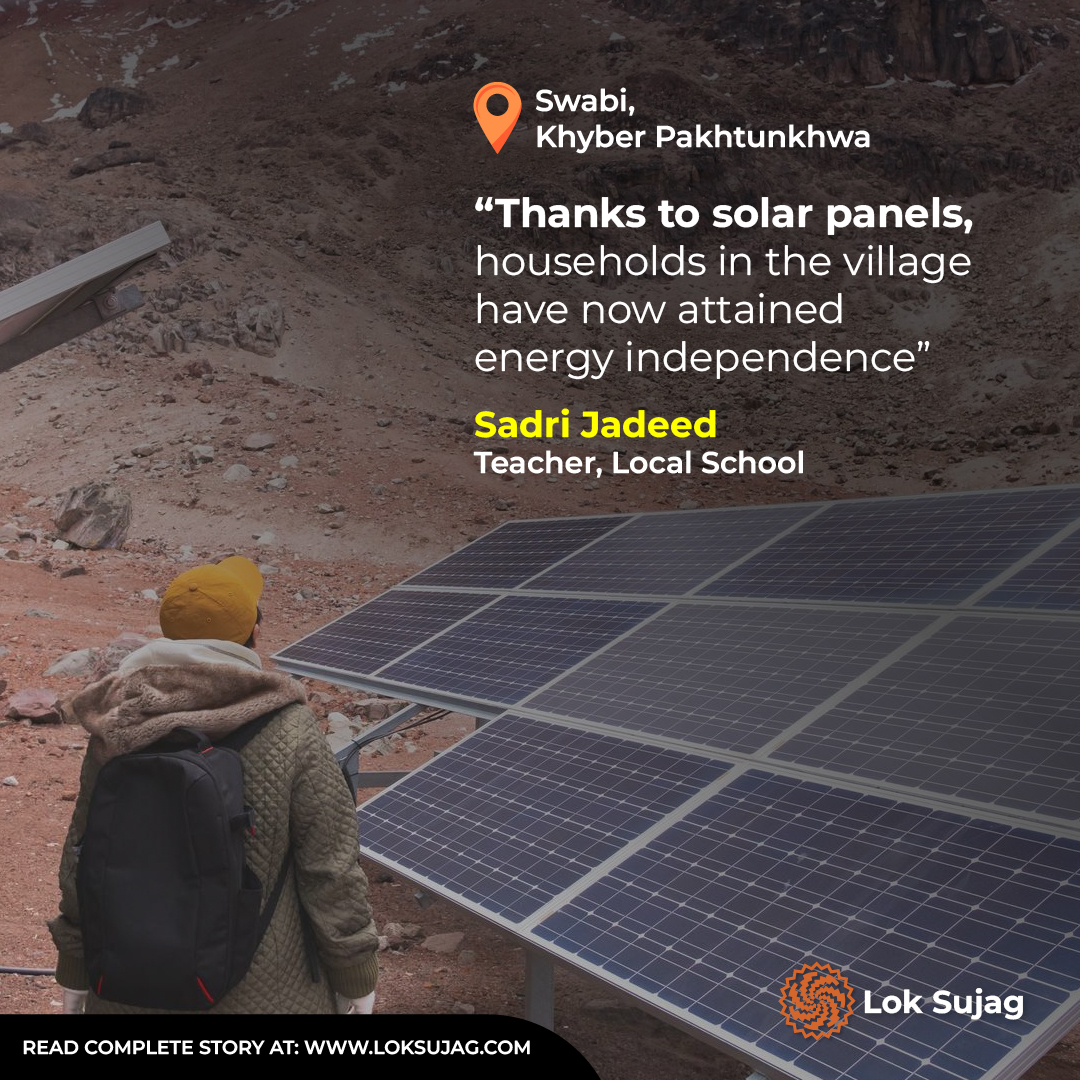
Though it may look like the energy transition lacks positive momentum, there is some hope, especially for Shewa Ram, a climate action practitioner in Sindh. For him, the installations of solar and wind power projects in his province, particularly in areas like Thar, indicates progress in harnessing renewable energy resources. He believes that, “in essence it is the formulation and more importantly the implementation of policies and regulations supporting renewable energy that reflects national commitment to energy transition.”
Socioeconomic Benefits
The clean transition is known to yield substantial social and economic advantages, including creation of employment opportunities, the stimulation of local industries, the improvement of air quality, and the reinforcement of energy security. However, the pertinent query persists: Can Pakistan reap similar social and economic benefits from this burgeoning industry?
“According to estimates from IRENA, doubling the share of renewables can increase GDP by 0.2-4% and create twice as many jobs as fossil fuel technologies. In a country like Pakistan, where fuel imports dominate overall imports, the potential savings are substantial”, shares Zeeshan. Co Director of Pakistan Air Quality Initiative, Dawar Butt added that the benefits will range from reduced utility bills to public health improvements, as local and regional air pollution would fall as a result of energy transition in the country.
According to Raza Majeed, head of Sympl Energy, foreign direct investment inflow with multinational companies opening up their offices in Pakistan and most of the big manufacturers now recruiting local teams can also help improve the economic situation.
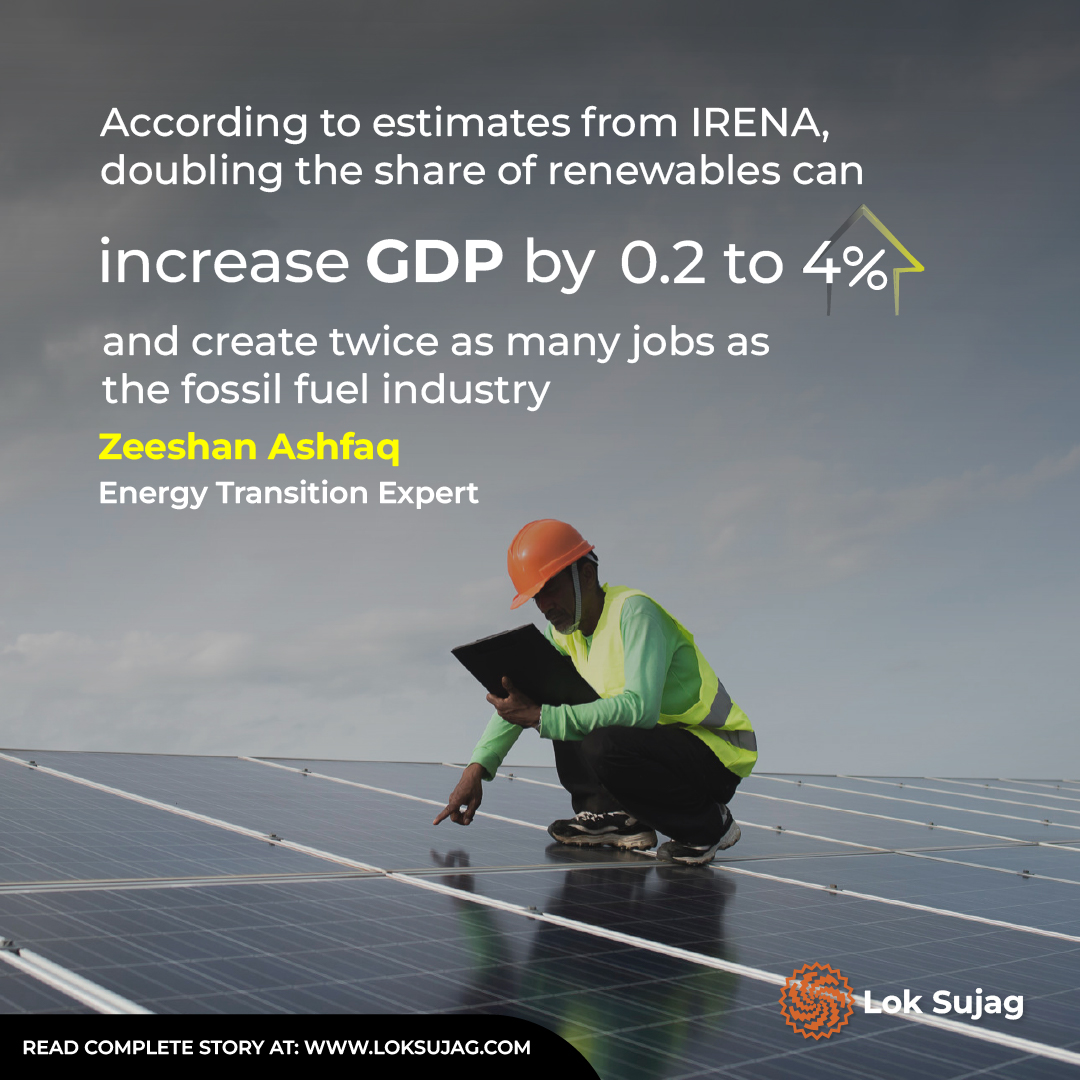
In our current backdrop, marked by societal deprivation, unemployment would make it worse by plunging populations deeper into misery. Energy insecurity compounds these challenges, intensifying apprehensions. Particularly, livelihoods, especially in rural and semi-urban areas, have become precarious due to energy instability. These regions, already plagued by developmental setbacks stemming from inadequate energy and educational resources, are already on the frontline of bearing climate change calamities.
Integrating Renewable Tech
The adoption of renewable energy technologies is directly linked with bringing changes in household budgets and spending patterns. Use of solar panels and other clean energy sources, provided by private franchises, has brought down bills in the residential domain.
In some of the remote villages of Pakistan, where access to electricity was once a distant dream, renewables are bringing light and hope. Solar microgrids installations are not only powering homes — but also empowering individuals.
A community leader explained that with the adoption of Solar PV in Revo Kolhi Village, district Umerkot led to a significant change in the household budgets - the same amount previously spent on costly gasoline, kerosene and other fuels for lighting and heating started to save up.
In a quaint village in Swabi, Khyber Pakhtunkhwa (KP), Sadri Jadeed - a community leader and educator at the local boys’ school, Sanaullah shared witnessing a remarkable shift due to the solar revolution. “Gone are the days of exorbitant electricity bills and load shedding woes. Thanks to solar panels, households in the village have now attained energy independence,” he observes firsthand the impact on residents and their utility bills.
This naturally prompts the question: while some of the energy experts assert that the government's energy transition efforts are slow, how do some areas seem to reap benefits? Sanaullah revealed that in his village, offices, mosques, and schools have received solar panels sponsored by the KP government.
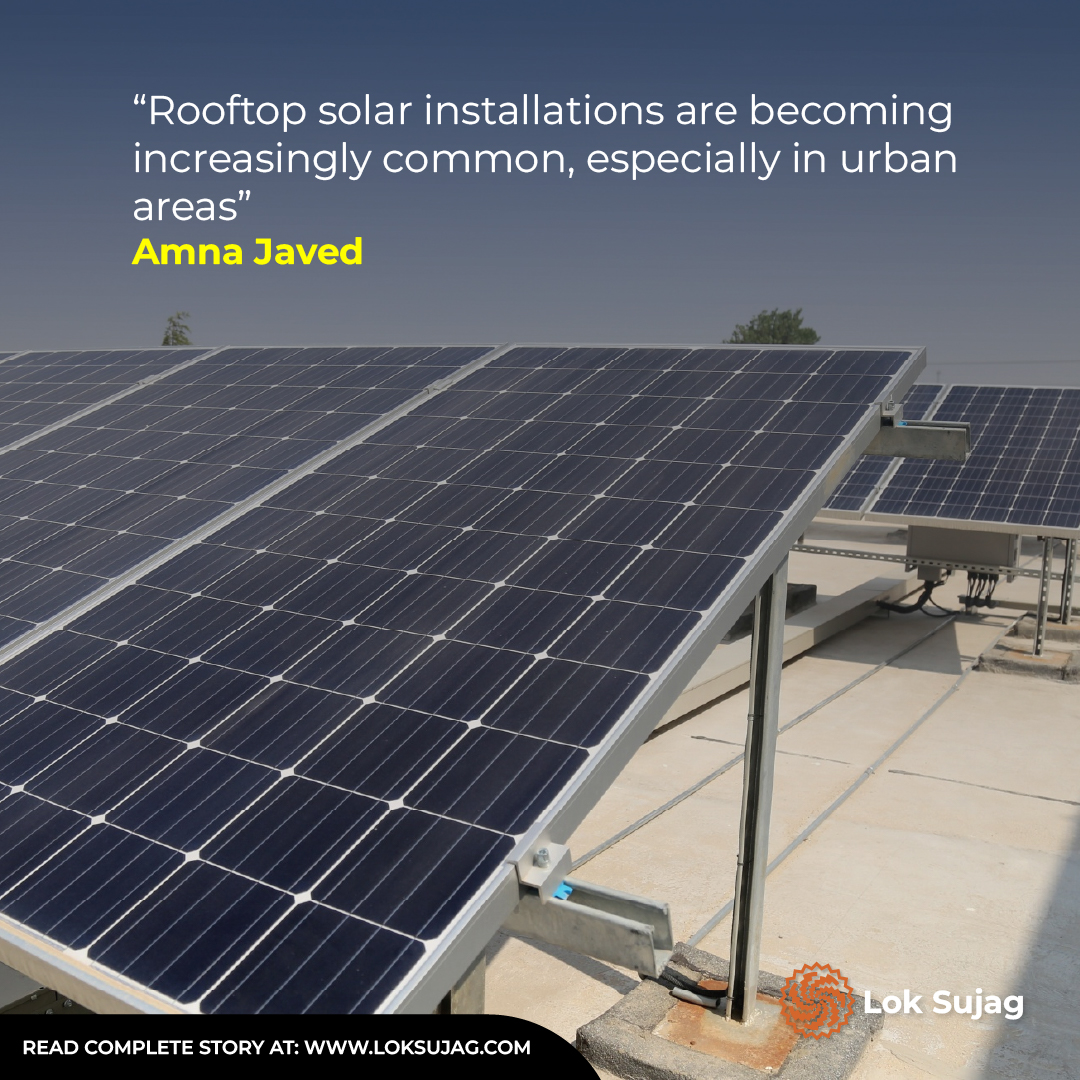
Rooftop solar installations are becoming increasingly common in urban settlements. This switch to solar panels helps reduce dependence on the grid and lower electricity bills for consumers.
Carrying the conversation forward, Raza Majeed believes that, “Renewable energy and microgrids can be the lifeline in those areas. Education, healthcare, food security, production and community life can be improved in those areas.”
Dawar Butt commented that renewable energy sources which have already been deployed in the agriculture sector, to run tube wells, “but wider electrification using off-grid renewable systems has not been planned.”
Zeeshan Ashfaq pointed out that “with over 20% of the population still unconnected to the grid, renewables offer better alternatives to achieve equitable electricity access across the country.”
Affordability must be at the forefront of Pakistan's renewable energy strategy. Currently, solar panel systems remain out of reach for many, particularly middle-class and low-income households, with costs hovering around 1.5 million PKR. This places an unfair burden on already struggling families, forcing them to prioritize between basic necessities. However, if renewable energy projects become more accessible, the potential benefits are immense.
Government and Policymakers at Play
In 2023, the COP28 delegation from Pakistan prioritised securing transnational financing to support the country’s clean energy transition. Looking towards Just Energy Transition Partnerships (JETP), Pakistan aimed to speed up decarbonization efforts in developing nations while lessening social costs. Though, it seems that the government is failing to fall through the implementation. Pakistan’s path forward is daunting and requires internal cohesion. There is a quite a need for seeking multi-stakeholder collaborations to access international climate finance.
Currently, in the absence of concrete measures on paper regarding trade-offs for policymakers in adopting clean energy transition, action is missing. According to Dr. Shakeel, it stems from the dominance of the political elite in energy-related businesses such as hydrocarbon fuel, batteries, and generators.
Though Raza Majeed identified some recent efforts, such as KfW development bank and World Bank teaming up to provide small energy storage solar systems to communities with limited or no access to the grid. Additionally, “within Punjab, certain rural municipal companies are spearheading projects to power sanitation and water facilities using solar energy, while micro-hydel turbines are being installed in northern areas.”
Also Read
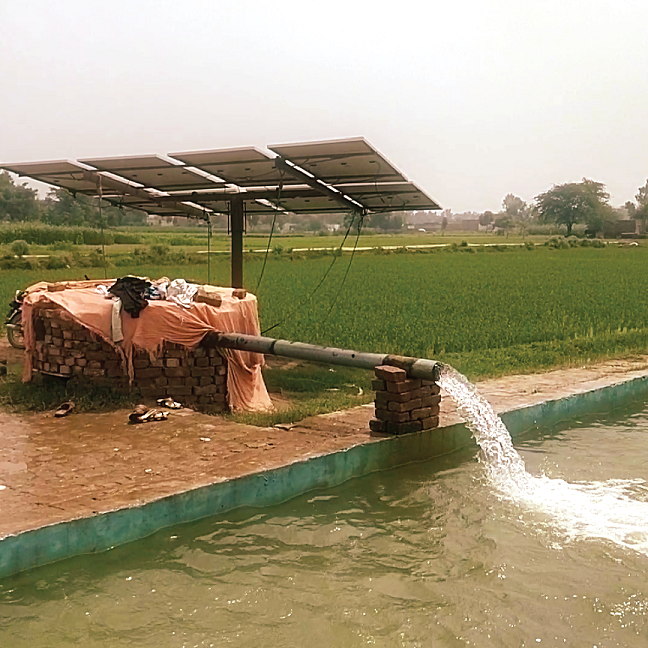
Why are farmers switching their tube wells to solar systems?
Yasir Husain, Founder of Darya Lab, policymakers should be cognizant of potential trade-offs - as they extend beyond policies concerning clean energy solutions and cover various technical aspects as well. Yasir claims that “leveraging new designs, technologies and engineering knowledge to their fullest extent can result in a win-win situation”. These demands integrate life-cycle assessments into design processes, including considerations for recycling, material circularity and social and environmental protections.
Tackling challenges: paving the path ahead
The missing link remains the absence of sufficient planning and policymaking on a systemic level for the smart integration of renewable energy sources. Financial constraints within the country may be a significant factor contributing to this lack of proactive action.
According to energy experts, transitioning the entire fleet of power plants would be a costly endeavour. Given the current financial situation, the country lacks the necessary funds for such a transition. Unless there is a significant acceleration in GDP growth and energy demand, it is unlikely that the required investments will materialise.
Furthermore, as highlighted by Raza Majeed, another layer of challenge arises from the intermittent nature of renewable sources such as solar and wind. Overcoming this challenge requires considerable investment in installation and grid modification to ensure round-the-clock energy security.
Nonetheless, one thing remains clear: the clean transition is more inclined towards solar power, despite the presence of wind and hydel sources, albeit mostly in private capacities. Stories are emerging from Khyber Pakhtunkhwa and Gilgit Baltistan, where new energy systems have boosted productivity and girls in Hunza and Chitral are gaining confidence in using digital media. Perhaps even more compelling tales will emerge from rural areas, where clean energy systems have the potential to transform livelihoods, provided there is a concerted effort to plan and integrate these systems into the broader framework. This will then become about ensuring that no one is left in the dark, that everyone has a seat at the table, and that progress is not measured solely in megawatts but in lives transformed and futures illuminated and true sense of climate and energy justice. As the energy sector flourishes, so too does the potential for a transformative social change.
Published on 20 May 2024
